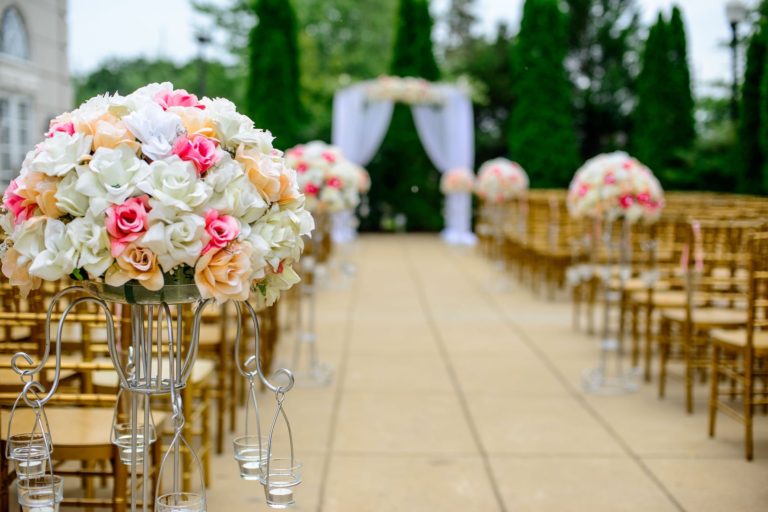

I know a 34-year-old woman who lives a beautiful suburban life. She is head of the parent-teacher association in her small, central New Jersey town. She is a frequent sideliner at her daughter’s softball games every Saturday. She owns a quaint little ranch house with flowers blooming on the front porch and a white picket fence.
She bakes cookies for her daughter to bring to her classes and sports practices. She and her partner are seen out every Friday night, usually at a local eatery for their weekly date night. She has a stable job, a stable family and stable life. The only thing out of the ordinary about her refusal to walk down the altar.
She tells me the concept of marriage has been lost on her. With a 50 percent divorce rate, the growing trend of separate assets and prenups, she feels no desire to have to publicly solidify her relationship. She sees marriage as outdated. It is not her lack of trust in her partner. Within their 10 year relationship span, they have bought a house together, have raised a child together and expect their partnership to be a permanent one.
This woman is part of the growing trend of millennials who view marriage as an outdated trend. The U.S. Census Bureau reported in 2018 that in 18 to 34-year-olds, rates of cohabitation are going up, while rates of marriage are on a downward trend.
What is it about young people that has set off this turn away from marriage? Why do we choose cohabitation over walking down the aisle?
Society has taught us from a young age that marriage is a necessity. A decade ago, we watched our favorite childhood movies end with marriage being synonymous with the concept of “happily ever after.” We watched princes and princesses fall in love in extremely short spans and spend forever together in sweet bliss.
We watched sitcoms of doting wives and hard-working husbands grow families together and live the white picket fence fantasy we all thought we wanted. But in recent years, we know that is not what everybody wants. And that is okay.
As society and media as a whole has slowly become more inclusive, we have begun to see different sorts of lives, and how they can be just as much of a happily-ever-after. We have seen workplaces become more open toward women, and the idea of a driven businesswoman has become more accepting. A woman has a place in the workforce.
We have seen more diversity in relationships on television and on the big screen. No longer do we live in a heterosexual frame. We see gay, lesbian and bisexual couples. We see different ways of life. We see that many people live in many different ways and are perfectly content with that.
The Disney movies that once ended in marriage, now end in heroine arcs and stray away from the necessity of romance. Slowly, we have realized that marriage is not necessarily the key to happiness.
Jobs have become careers, and many Generation Z’s and millennials have focused on their own path, not on building a traditional family.
As we have begun to challenge societal norms, the concept of marriage has become one of them. Little girls are beginning to look up to career powerhouses like Rep. Alexandria Ocasio-Cortez (D-N.Y.), not the Ariel the mermaid, who gave up her life for a man she barely knew. So maybe for a lot of us, marriage is no longer on the forefront of our lives.
We know now that “’till death do us part” is no longer that binding pact it once was. Divorce rates are still very prevalent, and that is not such a bad thing. Many women no longer have to stay in abusive relationships for the sake of financial stability, and divorce is no longer the scandalous thing it once was.
My mother used to tell me about how, as a child of divorce, parents would not let their children play with her. She was ridiculed and isolated. Today, that is almost unheard of.
There is nothing wrong with marriage. But, there is nothing wrong with not getting married either. And if these trends continue, maybe that will one day become the more common route.
Laura Esposito is a School of Arts and Sciences junior majoring in journalism and political science. Her column, “Unapologetically,” usually runs on alternate Tuesdays.
*Columns, cartoons and letters do not necessarily reflect the views of the Targum Publishing Company or its staff.
YOUR VOICE | The Daily Targum welcomes submissions from all readers. Due to space limitations in our print newspaper, letters to the editor must not exceed 900 words. Guest columns and commentaries must be between 700 and 900 words. All authors must include their name, phone number, class year and college affiliation or department to be considered for publication. Please submit via email to oped@dailytargum.com by 4 p.m. to be considered for the following day’s publication. Columns, cartoons and letters do not necessarily reflect the views of the Targum Publishing Company or its staff.